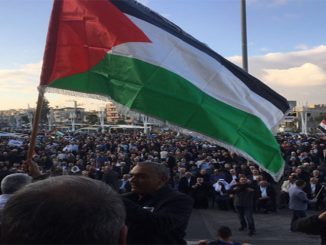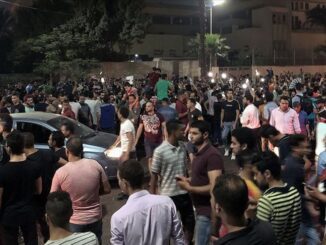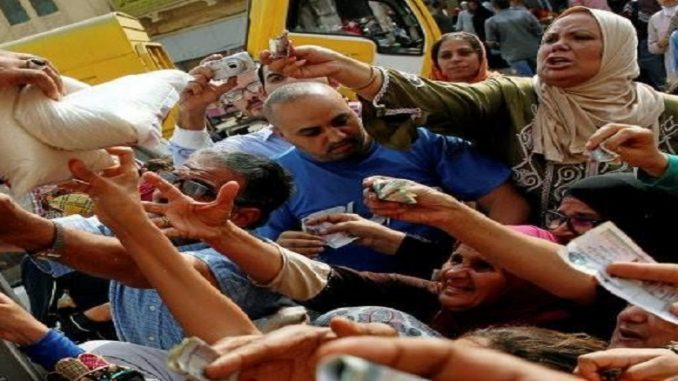
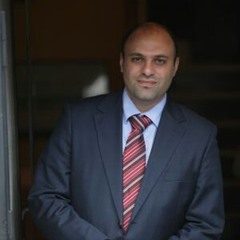 By: Yehya Hamed*
By: Yehya Hamed*
Although the economic policies of former Egyptian President Hosni Mubarak could be described as being biased toward the business class with pervasive administrative corruption, yet they were clearly away from targeting the middle and lower classes in a systematic way.
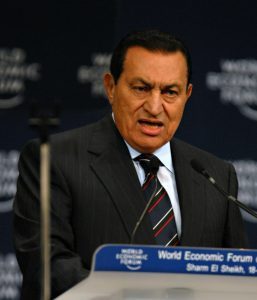
Mubarak was keen on maintaining the financial support directed to the lower classes through the food and oil supplies to avoid provoking them. As the population was increasing and the global oil prices were rising, the cost of subsidies were also increasing the burden on the public budget: the subsidies then constituted about a quarter of the state’s public budget. However, Mubarak’s policies remained clear in the bias to the business class – and not even attempting to address the administrative corruption or do any serious effort to eliminate it – while maintaining provision of possible support to the middle and lower classes.
Mubarak’s policy of maintaining subsidies to the poor prevented any steady rise in the transport fees as well as the prices of commodities. Inflation in the last 10 years of Mubarak’s rule remained between 2.6% and 11.2% except for 2008, when inflation jumped to 18.3%, according to statistics from the World Bank database, due to the global food and fuel crises. With the increase in the informal economy sector, citizens were able to secure their daily living in one way or another, while the poverty rate did not exceed 16.7% until 2008.
Mubarak’s governments (known as the “governments of businessmen” led by Ahmed Nazif) during the last years of his rule, were characterized by involvement in much rentier activities and corruption. However, all economic indicators showed that there was improvement in the country’s macro-economy, as well as at the level of the money exchange reserves which reached about 36 billion dollars during the revolution of 25 January revolution (2011).
Mubarak, in a certain way, could not completely lose control of the economy. On the contrary, the policies of Gamal Mubarak (Mubarak’s son) managed to move from being semi-socialist policies to be neo-liberal policies, with uncertainties about how to control the relationship between infringing capital on the one hand, and the rates of poverty and unemployment, the steady overpopulation, and the lack of a proper production movement, on the other.
Harbingers of January 25 Revolution (2011)
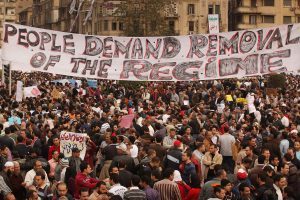
Although the middle class suffered under the rule of Mubarak, however they did not vanish. When the middle class diminished, it tried to resist, relinquishing luxuries enjoyed by the middle classes in other societies. Egyptians belonging to the middle class during Mubarak’s era were keen on providing the best education for their kids, tried to diversify their sources of income, and benefited to some extent from the economic openness in some periods of Mubarak’s rule.
Although workers did not belong to the middle class in Egypt, however they were largely losing their ability to withstand pressures, as businessmen sought to crush the working class during that period. Afterwards, the remnants of the educated middle class that hoped for a better future cooperated with workers and led the January 25 revolution (2011). The demands of revolutionaries were not primarily economic, but they were a clear mixture of demands from the middle class and the workers’ class: social justice, freedom, and a better economic situation.
Thus, Sisi has never forgotten the role of the middle class and the workers’ class in the January 25 Revolution!!
I impartially believe that the policies of the Muslim Brotherhood and President Mohamed Morsi were clearly biased to the middle-income people; they worked to include the most laborious sectors in the middle class through various policies, legislation, and procedures.
The experiment of Dr. Mohamed Morsi, the first elected civilian president, was very short, with only one year in power, which requires that objective researchers should discuss the procedures, legislation and policies that Morsi adopted rather than seeking their results, as the coup d’etat, led by Sisi, allowed no time for these policies to produce their desired results.
Al-Sisi’s Plan
Five years have passed after the bloody coup d’état that Sisi led together with some of his generals, some elites, and supporters of some popular sectors – regardless of the debated numbers – we must read and analyze his policies to find out their negative effects on the fabric of society in Egypt.
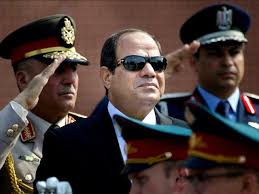
In his relentless pursuit of targeting the middle class, Sisi has been practically working to eliminate it. Unfortunately, a number of countries in Africa and Latin America “succeeded” in ending the middle class and represented “models” for Sisi to follow. Sisi proceeds from the principle that the middle class must suffer and pay for any aspiration it previously made during the revolution, depriving them from any support that could be provided by the state.
I always remember our talks with the International Monetary Fund (IMF) during the period of Mohamed Morsi – I was one of the team members who met with the IMF mission – where the team of IMF experts suggested lifting subsidies to cover the budget deficit, a method usually followed by the IMF with developing countries, which would eventually result in hiking price of all commodities.
The response of Dr. Hisham Qandil’s government was that the IMF demands of lifting subsidies was certainly unhelpful. The government’s argument then was that the subsidy intended for the low-income in Egypt is usually stolen by at least 15% to 20%, and that they would work to prevent such thefts and to deliver subsidy to those who really needed it. Qandil’s government was also moving to limit the process of lifting subsidy to only the rich who unfairly steal the poor’s rights. An example for this policy was seeking to lift subsidy on petrol-95, usually consumed by the rich, and maintaining subsidy on the petrol-80 and petrol-90, consumed by the lower and middle classes. Also, the idea of the “subsidy card” that Dr. Bassem Ouda, Minister of Supply in Qandil’s government, introduced in record time, was to control the subsidy system and secure its delivery to real beneficiaries.
I am not trying here to say that this was the best economic policy, as there might have been other good ideas – but such policy was at least seeking to avoid the situation we are facing today.
When Sisi canceled the “subsidy card”, he was deliberately hurting the middle class by lifting subsidy on fuel all at once. He realized that such move was to prevent the middle class people from even dreaming of owning a car or buying a durable commodity, especially after lifting subsidy and raising prices of all commodities. Also, Sisi cancelled the “experimental schools”, where the middle class used to send their kids to receive a satisfactory level of education in return for payment of low fees. In fact, there are only two classes in Egypt now: a higher class that Sisi will never attempt to anger – and those will have to turn a blind eye on those who are starving, for fear of Sisi’s punishment – and a lower class that suffers from extreme poverty, and no one cares about them. Those who belong to this crushed lower class are also required to give up their values, while being left alone to seek their living in any way from each other, which resulted in a rise in the rates of black economy in Egypt; and Sisi still believes that he is moving in the right direction.
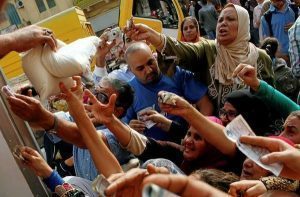
Conclusion
Societies usually rely on strong middle classes that have values and economic and social structures. In fact, the middle class is the real social capital for any society. Sisi realizes that by controlling the leading activists, he is protecting himself against any new revolution. He also realizes that to lead the society towards a complete collapse, he must target the repository of community values, namely the middle class. The absence of the middle class will never lead to a new revolution, but instead it will lead to further moral decay and the loss of social cohesion. Sisi will continue to make more promises that will never materialize. At the same time, he will continue to seek destruction of everything in Egypt, including what remained of the middle class.
Egypt will only triumph if the government pays much attention to the middle class, provides jobs within a productive system not just a consuming one, and improves the conditions of workers and employees – but not at the expense of investors and businessmen. This equation has succeeded in other experiments worldwide, and I believe that it will succeed in Egypt soon after it acquires its due freedom.
*Yehya Hamed is Egypt’s Minister of Investment in the government of Dr. Hisham Qandil.

